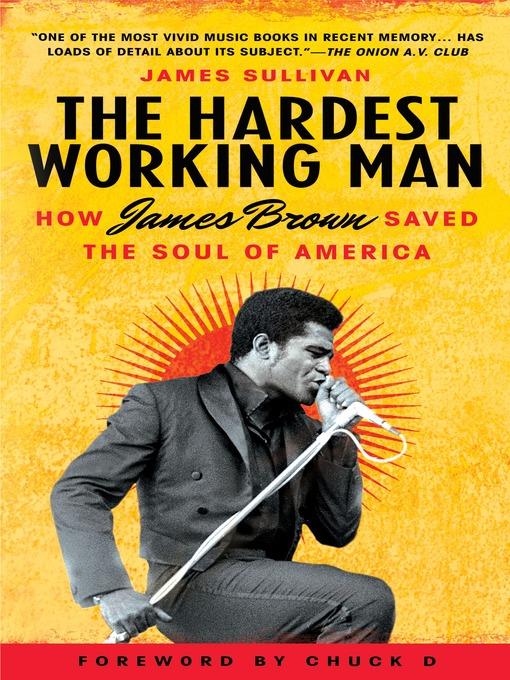
The Hardest Working Man
How James Brown Saved the Soul of America
کتاب های مرتبط
- اطلاعات
- نقد و بررسی
- دیدگاه کاربران
نقد و بررسی

September 22, 2008
As Boston Globe
columnist Sullivan points out in this book, Brown's personal life (sexual exploits, spousal abuse, jail time) obscured a public persona that encouraged African-American children not to drop out of school and demanded that his African-American brothers and sisters respect themselves rather than putting themselves down. At the center of the book is Brown's concert at the Boston Garden on the night following Martin Luther King's assassination in 1968. Because of rising tensions among African-Americans in the city, Mayor Kevin White's first impulse was to cancel Brown's concert. Yet realizing that ticket holders might be just as angry over a canceled concert as they might be impassioned to riot by a raucous one, he and Brown worked out a deal to allow the concert to go on. Once on stage, Brown opened with his by-then famous “Please, Please, Please,” which became that night a rallying cry for his audience to respect themselves and others, just as King had done. Sullivan only briefly traces Brown's rise and fall as a musician from his early days in Edgefield, S.C., to his death in Augusta, Ga., as he recovers a facet of James Brown as a political and racial leader.

November 1, 2008
The godfather of soul, Brown died in 2006. This snapshot of his personal and public lives focuses on his concert in Boston following the assassination of Martin Luther King Jr. Sullivan, a contributor to the "Boston Globe", also addresses Brown's later years, which included arrests, affairs, domestic violence, and tax evasion.
Copyright 2008 Library Journal, LLC Used with permission.

October 1, 2008
Sullivan examines James Browns role in saving Boston from the fires and riots that swept the U.S. after Martin Luther King Jr.s assassination. Booked into Boston Garden the night of April 5, 1968, Brown agreed to put the show on live local TV to give would-be rioters reason to stay home. Garden management wanted to cancel, doubtless to avoid rioting in the Garden, but Brown and Bostons first black city councillor interceded with Mayor Kevin White to prevent cancellation. Sullivan goes further in crediting Brown for keeping the peace than others have, and so doing, he also examines the Godfather of Souls life and career in the context of the Civil Rights movement. By 1968, Brown had become Soul Brother Number One, and his presence was a major event, a ritual. At the same time, the cultural gulf between races was was so wide that the mayor at first thought the headliner in question was Jim Brownthe NFL running back. A good record of a pivotal event and a serviceable Brown bio, to boot.(Reprinted with permission of Booklist, copyright 2008, American Library Association.)

























دیدگاه کاربران